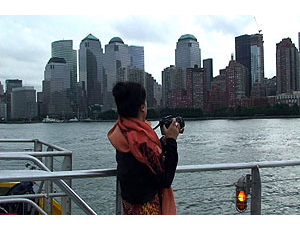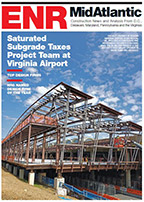With a 500-participant, trans-Atlantic crowd and the venue of a science center—reached by a rollicking boat ride across New York Harbor from Manhattan—the H209 Forum, “Water Challenges for Coastal Cities,” struck an aquatic note from the start. The Sept. 9-10 conference at the Liberty Science Center in Jersey City, N.J., was a joint production of Dutch and New York interests who used the 400th anniversary of Henry Hudson’s historic landfall in New York Harbor to launch a dialogue on mutual concerns about water challenges of all sorts, including increasing demand on water supplies and infrastructure and the prospective effects of climate change on weather patterns, which have potentially dire consequences for densely populated coastal cities.


“The U.S. and the Netherlands face the same challenges,” said Tineke Huizinga, the Dutch vice minister of transport, public works and water management, via video link from the Netherlands. “Water management is a crosscutting issue, and it makes sense for countries that deal with similar issues to share knowledge and best practices,” she said.
Possible negative impacts of climate change cited include higher average temperatures and more frequent heat waves, increased flooding, higher sea level, greater vulnerability to ocean storms and storm surge, disruption to rainfall patterns over watersheds, with alternating periods of drought and extreme rain events leading to upland flooding and overcharged runoff sweeping pollution into water supplies. A positive impact, however, includes the opportunity to invent and employ adaptation techniques that could reduce risk and improve quality of life for coastal inhabitants in the long run.
Harry Noy, CEO of Arcadis NV, Arnhem, the Netherlands, said, “The first question is, Will we recognize climate change as an important issue? It is very difficult to make infrastructure funds available for issues that ‘may’ appear,” although he said the consequences of getting this wrong “are huge.”
The New York area is projected to see up to a 55-in. sea-level rise in the next century unless glaciers and the Greenland ice-cap melt accelerates, which could double that, experts reported.
The presentations included a parade of informed, influential and sometimes passionate panelists and speakers representing many stakeholders in the water-management matrix. Robert F. Kennedy Jr., president of the Waterkeeper Alliance, spoke for that citizens group, which has grown from a Hudson River Valley startup, combating industrial polluters with lawsuits, to an international force with more than 200 chapters worldwide. It operates on the principle that “water belongs to the people, not governments, not corporations, and nobody has a right to use it in a way that diminishes its value to others,” Kennedy said.
Michael H. Shapiro, acting assistant administrator for water at the U.S. Environmental Protection Agency, pledged EPA is getting “increasingly engaged” with urban planners on how to manage and plan urban land use to reduce the impact of stormwater runoff on water supplies. He said EPA also is seeking to break out of the pattern of water-infrastructure management, in which infrastructure is built well but then starved for maintenance resources and allowed to deteriorate. The better option is to move to a more sustainable approach of timely maintenance to avoid unnecessary expenses in the future. He pointed out that the approach fits in well with green initiatives, as well as the incorporation of adaptations for climate change.
Cees Veerman, chairman of the Second Delta Commission, an advisory board commissioned to take an independent look at the Dutch flood defenses in 2007, called climate change “an even more serious threat” to the Netherlands than storms. The Second Delta Commission’s final report, issued last September, has turned out to be a remarkably effective tool for redirecting 50 years of Dutch flood-protection and water-management policy. On its...




Post a comment to this article
Report Abusive Comment